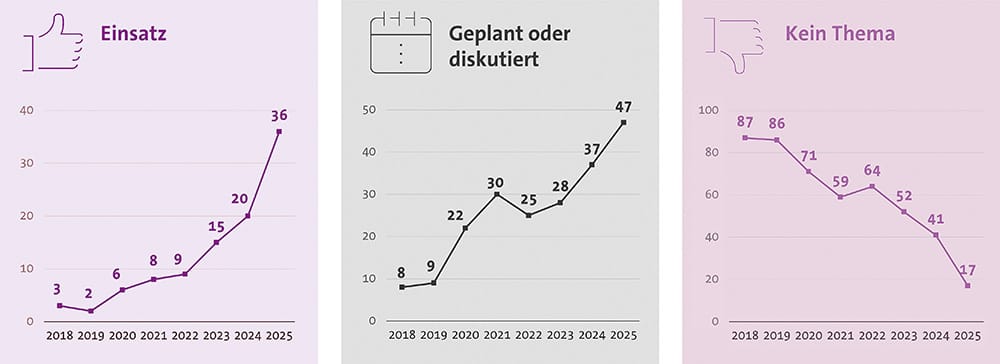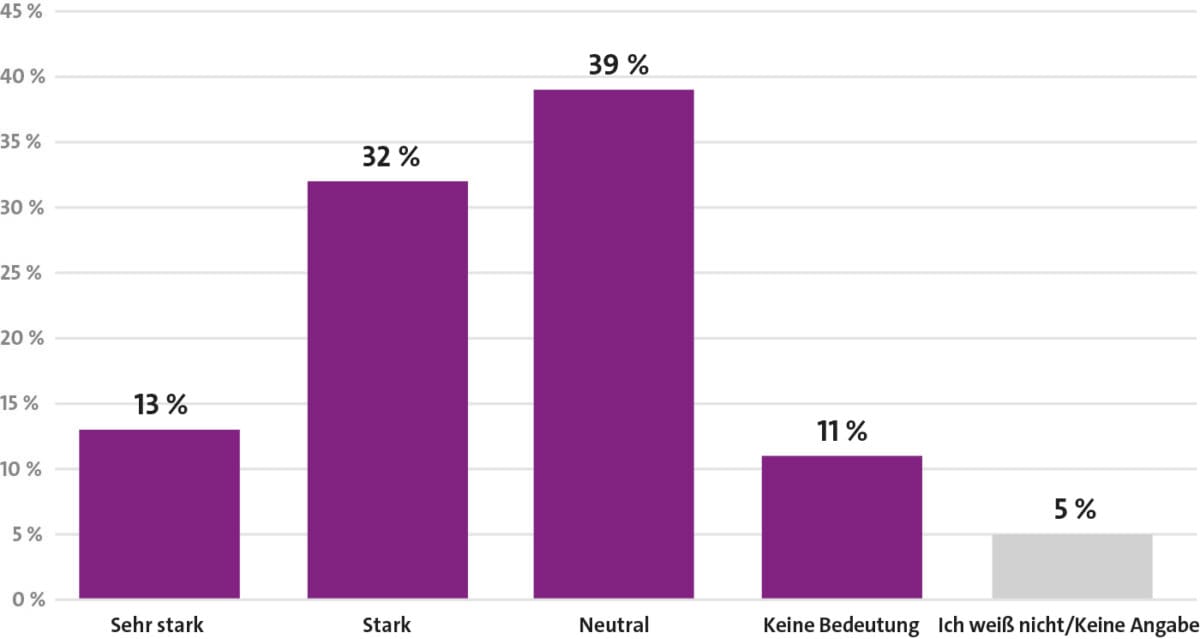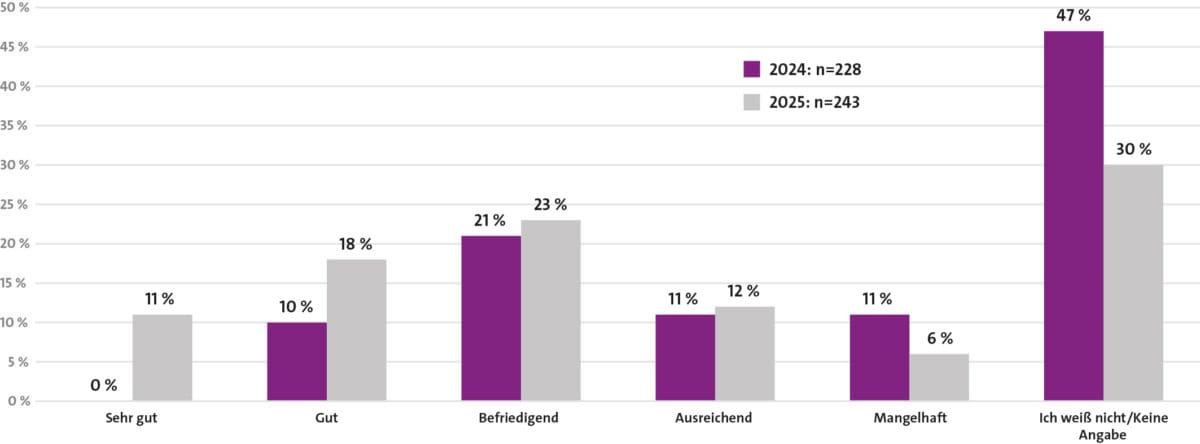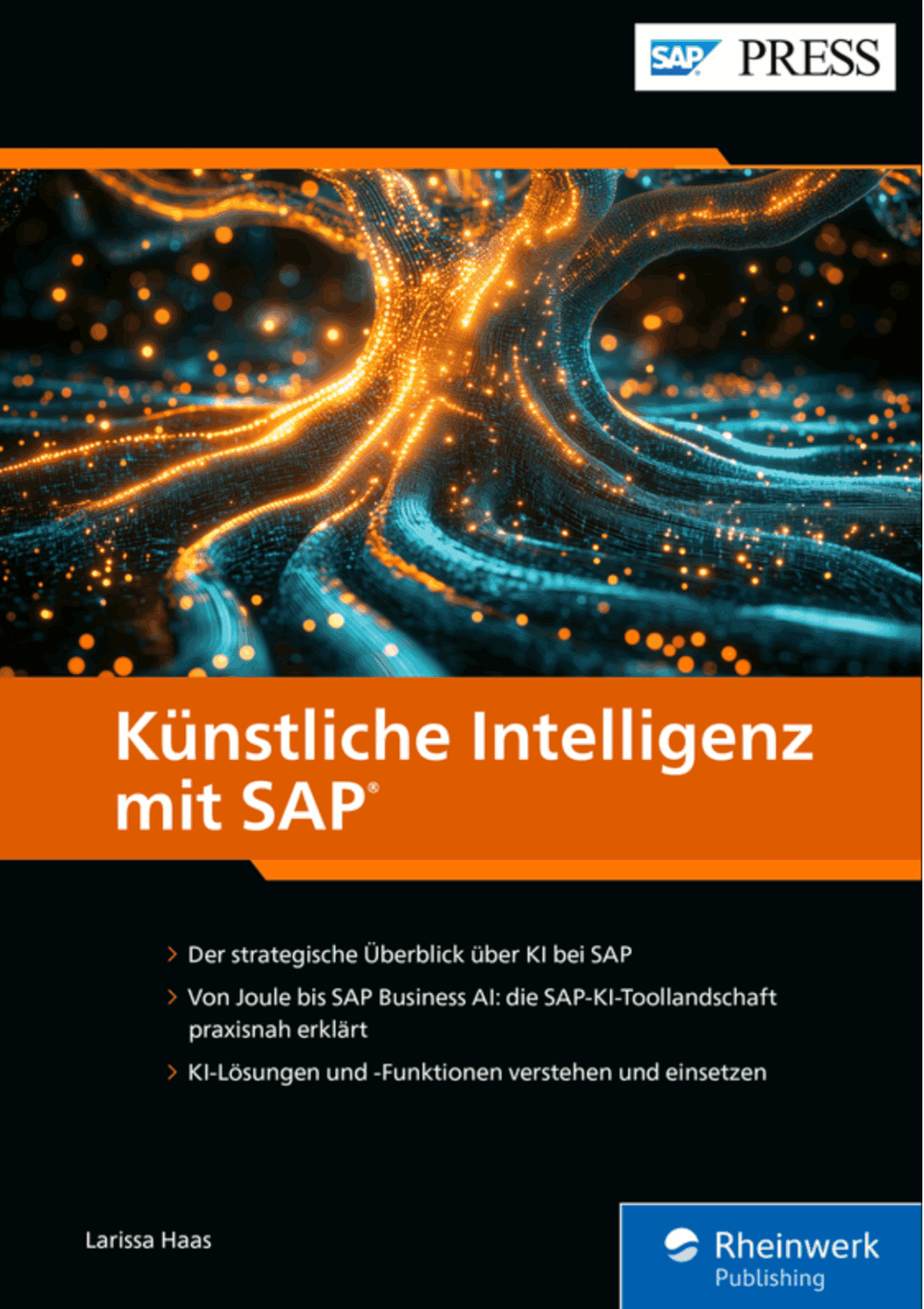AI with ERP, BTP and BDC


There are a few proof-of-concepts, and the scene is dominated by the topics of Hana, BTP and BDC, cloud, automation and licenses. Are SAP and its partners missing out on the AI evolution? And are we really better than Ada Lovelace, the first female programmer?
The activities of the 180 SAP partners in Bremen at the congress of the DSAG user association with over 5,000 participants were strikingly different from Viva Technology, an IT and AI event in Paris in the early summer of 2025. While the SAP community in German-speaking countries is still struggling with digital transformation and S/4 conversion, with the focus on topics such as monitoring, automation, IT platforms and data management, visitors to Paris were able to admire numerous operationally functioning AI applications from the global IT community and its customers. Even former SAP CEO Jim Hagemann Snabe was on the keynote stage in Paris as Chairman of the Supervisory Board of Siemens - there was no sign of SAP among the 180,000 participants. Is SAP once again missing out on a major IT trend?
While the world is in an AI frenzy, SAP Executive Board member Thomas Saueressig explained on stage at the DSAG Congress in Bremen how S/4 public cloud customizing can succeed on a "greenfield site" - there was no mention of AI, as if the topic did not exist. When SAP and partners are asked about AI, there are references to SAP BTP (Business Technology Platform) with a GenAI hub and Joule Studio (a development environment for intelligent bots) as well as the "paramount" importance of data and data management in connection with the US company Databricks based on the SAP Business Data Cloud (BDC).
Germany uses AI
In contrast, the digital association Bitkom writes in a press release that every third company in Germany now uses AI, almost twice as many as a year ago. However, numerous discussions with SAP partners show that the benefits in the SAP community are limited to proof-of-concepts, while there is hardly the desired added value and value creation in operational ERP operations. Bitkom: Artificial intelligence has become widespread in the German economy in recent months. In addition, almost every second company is currently planning or discussing the use of AI, which is also significantly more than in the previous year. These are the results of a representative survey of 604 companies in Germany with 20 or more employees commissioned by the digital association Bitkom. "Artificial intelligence has achieved a breakthrough in the German economy," said Bitkom President Ralf Wintergerst. "Companies have not only recognized the possibilities of AI, they are using AI and investing in it. This is good news for the competitiveness and future viability of the German economy."

Breakthrough in the use of AI. To what extent does your company use AI or is planning or discussing its use? Figures in percent (n=604). Not shown: "Don't know/k. A.". Source: Bitkom Research 2025.
Companies are at a crossroads as the digital world of AI takes on an increasingly significant role. In recent years, companies have adopted various approaches to cope with the plethora of technological changes. The approaches they have taken include digital transformation, SaaS and cloud solutions and the modernization of enterprise applications. This change is associated with enormous investments and is not only changing the traditional ERP world, but also represents an urgently needed move towards greater automation of business processes. In recent years, artificial intelligence has established itself as a tool that has a significant impact on business processes. It enables the optimization of long workflows and the acceleration of decision-making processes.
SAP BTP GenAI Hub and Joule
AI and its many variants have initiated a technical development that is of even greater importance for companies. The current development of AI, which includes all generative AI (see also SAP BTP GenAI Hub), is in an early phase of organizational acceptance and testing in 2025. Numerous proof-of-concepts and new products are being developed in this phase. This growth will be driven by the ability of organizations to improve their technology foundation through more automation, faster decision making and greater agility, while scaling quickly to meet the demands of the global digital economy. In a FutureScape study, IDC presents an analysis of the implications for organizations of leveraging innovations in artificial intelligence, particularly GenAI. The study identifies and evaluates ten key predictions for intelligent ERP applications that will be critical over the next five years. SAP legacy customers continue to focus on innovation and digital transformation, including modernizing their enterprise applications to SaaS and cloud technology. Generative AI is having a profound impact as it evolves and is applied to existing workflows. "Enterprises are facing numerous technology activities, including digital transformation, modernizing enterprise applications, automating workflows, experimenting with artificial intelligence, and enabling streamlined processes to support employees in their workflows," said Mickey North Rizza, IDC Group Vice President, Enterprise Software. According to IDC, the way the digital worker (AI agent) uses enterprise applications will fundamentally change. The focus will shift to more native AI applications.

Ada Lovelace (* December 10, 1815 in London,† November 27, 1852 London) was a British
Mathematician and socialite. She was the daughter of the poet Lord Byron.
Detail of a painting by Margaret Sarah Carpenter.
AI expertise and chatbots
AI can become a turning point in administration, for example through automated document recognition, chatbots or data-based decision support. However, for this to succeed, a government AI strategy is needed that takes equal account of data protection, feasibility and standards. Particularly in view of the growing importance of AI, the SAP user association DSAG is calling for ethical guidelines, transparency and comprehensible framework conditions. AI must be explainable, secure and non-discriminatory. From DSAG's point of view, it is crucial that only correct data flows into the AI and that its use is not unchecked. "The public sector must be put in a position to make independent and well-founded technological decisions. With regard to AI, public administration must therefore first build up the relevant expertise," explained Hermann-Josef Haag, DSAG Board Member for Human Resources and Public Sector. This includes not only knowledge and control of the technologies used, but also the ability to create a framework for open standards, data portability and long-term maintainability.
"With regard to AI, public administration must therefore first build up the relevant expertise."
Hermann-Josef Haag,
DSAG Board Member for Human Resources and Public Sector

The question about the relevance of AI for existing SAP customers also fits into this context. Accordingly, it is not surprising that 45% of DSAG members are considering AI very strongly/strongly in their IT investments for 2025. In addition, 48 percent of respondents state that they see a very high/high potential benefit in AI solutions. This year, 29 percent rate SAP's AI strategy as very good/good, while in 2024 no one gave the strategy a very good rating and only 10 percent rated it as good. "The results show that AI is becoming a key topic for the future for companies in the DACH region. The fact that SAP's AI strategy is rated better than in the previous year is a positive signal," says Jens Hungershausen, DSAG CEO. However, it remains unclear for many companies how they can profitably integrate AI into their existing SAP landscape at this point in time. "Transparent roadmaps and practical support from SAP are needed here," concluded Jens Hungershausen.

Investment in artificial intelligence. How is artificial intelligence (AI) factored into your IT investments for 2025? (n=243)
Monitoring AI and LLM
With regard to the manufacturers of enterprise software, DSAG believes that it is essential to ensure uniform framework conditions and comprehensive monitoring when integrating AI models into business processes. This also applies to transparent license and usage conditions - especially in connection with partnerships between manufacturers and other companies in the AI context. From DSAG's point of view, this topic needs to be discussed again separately. Jens Hungershausen emphasized: "Artificial intelligence can make many things easier, but it must not become a black box. We need transparent rules and clear responsibilities, both for developers and for users."
In his strategic guide "AI or never!", Rafael Bujotzek dispels the myths, prejudices and false expectations surrounding artificial intelligence. Artificial intelligence is changing the world of work at an unprecedented pace. While international corporations are already investing massively in AI technologies, there is still a great deal of uncertainty in German SMEs, public authorities and other organizations as to whether and how artificial intelligence can best be used. "The outlook is clear, especially for the economy: companies that want to remain competitive must essentially align their business models and processes with the use of AI," Rafael Bujotzek is certain. In his book "AI or never!", the expert speaks plainly. Bujotzek provides an outlook on the (near) future and analyzes the specific challenges facing companies and institutions in German-speaking countries.

Assessment of SAP's AI strategy. How do you rate SAP's AI strategy?
According to Bitkom, eight percent of the companies surveyed that use, plan to use or are discussing the use of AI want to invest significantly more in AI in 2025 than in 2024. A further 21 percent are planning to invest more. In contrast, only 5 percent plan to reduce investments, and no company plans to significantly reduce them. The vast majority of 60% are keeping AI investments stable at the previous year's level. "The entry into AI is more favorable for companies than ever before. There are numerous free offers to get an initial overview of the possibilities," said Bitkom President Ralf Wintergerst. "However, particularly powerful and legally compliant AI that is specifically tailored to the needs of the respective company and deeply integrated into the company's IT is not available for free."
Above all, companies would like politicians to promote German AI providers, reform the AI Act and improve access to data. Around a third of companies would focus on promoting AI research, investing in AI computing infrastructure and promoting the use of AI in administration and public authorities. 28% advocate the promotion of the use of AI in business, 17% for the promotion of AI start-ups and 6% for the promotion of AI talent. More than one in three companies would even like to see AI not be regulated for ten years - an idea that has been discussed in the USA. "When it comes to promoting AI, we need a holistic strategy," said Ralf Wintergerst. "This includes becoming much more ambitious in terms of both the breadth of measures and the investment sums."
AI integration in the ERP core
With its AI strategy, SAP is consistently focusing on integrating intelligence into its core products and BTP. In this way, SAP aims to support the digital transformation. With tools such as Joule, Embedded AI, special AI services and the GenAI Hub, as well as the option to develop your own AI, SAP has a wide range of options for automating processes and improving decision-making.
SAP BTP is the central technological platform. It provides the necessary infrastructure, development tools and integration capabilities to realize these AI initiatives and create a flexible, future-proof IT architecture. While there are challenges such as the shortage of skilled workers and the need for transparent licensing models, SAP's strategy of focusing on AI and BTP is critical to its own success.
Despite the many advantages, there are also challenges and points of criticism regarding SAP BTP. The DSAG association notes that the costs for development, quality assurance and use of the services without productive reference, as well as the general operating costs, are too high. There is a lack of sufficient APIs and clear rules for accessing SAP Hana.
Critics see BTP as a monolithic block that runs counter to the concept of (micro) services. BTP sometimes reaches its performance limits, and access to data in the S/4 stack is not always comprehensive. The complexity of the platform requires a deep understanding of its functionalities. Even if BTP uses certain open-source components, it remains an expensive AI product that requires a license, which raises concerns that it may not achieve universal applicability but remain an auxiliary tool for core ERP AI tasks.
There is a viable basis for ERP and AI with SAP BTP and BDC, plus modules such as Joule Studio (ex-SAP build enriched with AI functions), but the cost-benefit factor has not yet been defined, which means that there can be no final added value.
Book tip

Niklas Frühauf, Daniel Jeckel, Tommi Kramer, Florian Leicher
and Johann Zapf, 238 pages, ISBN 978-3-367-10817-6







